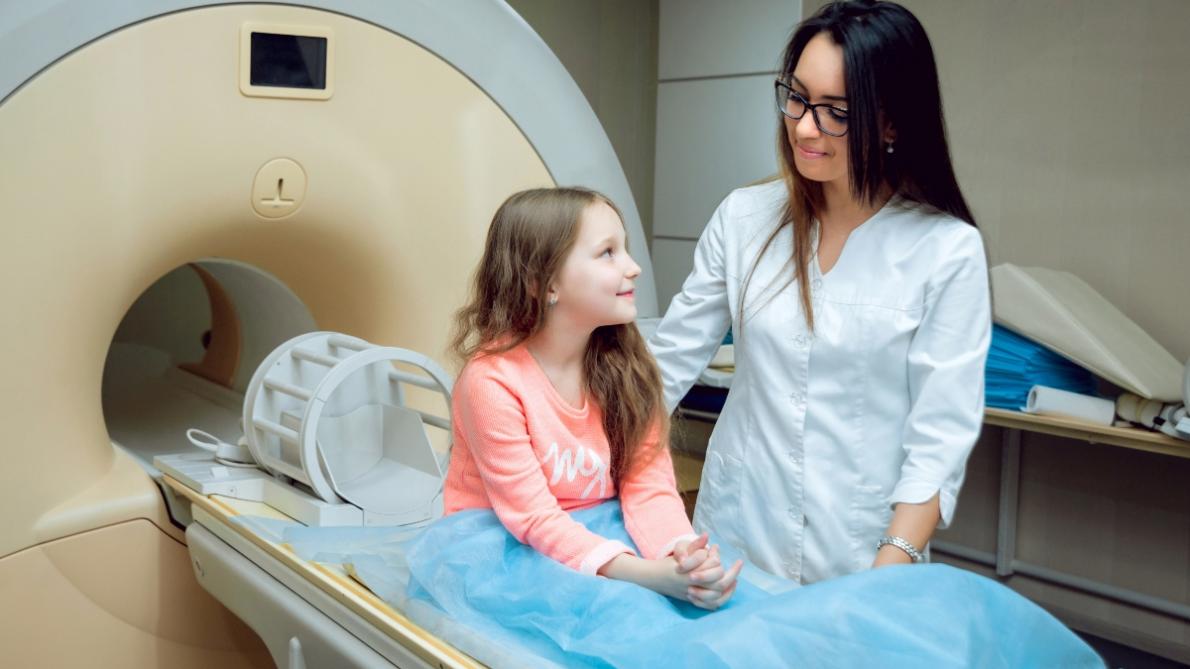Pediatric Brain Tumors: What You Need To Know

Pediatric brain tumors can be a difficult topic, but understanding them is essential for parents and caregivers. We aim to provide you with a clear and informative resource to help give you accurate insight on your journey. These tumors are abnormal growths of cells within a child's brain, and they can be both challenging and emotionally taxing to deal with.
These tumors can develop in various parts of a child's brain, affecting their physical and cognitive functions. To help you navigate this complex topic, we’ve created this blog to outline the basic information you should know.
Common Symptoms: Pediatric Brain Cancer
Recognizing the signs of pediatric brain tumors is crucial for early diagnosis and treatment. Some common brain tumor symptoms in children to be aware of include:
- Persistent Headaches: Frequent, severe headaches that don't improve with pain medication.
- Vomiting and Nausea: Especially in the morning or unrelated to meals.
- Changes in Vision: Blurred or double vision, or unexplained vision loss.
- Balance Problems: Difficulty walking or maintaining balance.
- Behavioral Changes: Sudden changes in mood, personality, or behavior.
- Seizures: Uncontrolled movements or convulsions.
Diagnosis and Treatment
Pediatric brain tumor diagnosis involves a combination of imaging tests, such as MRI and CT scans, and a biopsy for conclusive results. Once diagnosed, treatment options may include surgery, radiation therapy, chemotherapy, or a combination of these approaches. The choice of treatment depends on the tumor's type, size, and location.
Types of Pediatric Brain Tumors
Understanding the various types of pediatric brain tumors is crucial, as they can differ significantly in terms of location, aggressiveness, and treatment options. Here are the ways brain tumors can be categorized:
- Primary Brain Tumors: These tumors originate within the brain itself.
- Metastatic Brain Tumors: These tumors start in other parts of the body and then spread to the brain.
- Benign Tumors: Benign tumors are slow-growing and non-cancerous. However, they can still pose challenges if they develop within or near critical brain structures.
- Malignant Tumors: Malignant tumors are cancerous and tend to be very aggressive. They grow quickly and have the potential to spread to nearby areas of the brain and even to other parts of the body
Common Brain Tumors in Children
There are over 100 different types of brain tumors; these are only a few of the most common brain tumors in children.
- Astrocytoma: Astrocytoma is one of the most common types of gliomas found in children, making up around half of all brain tumors in children. There are four types of astrocytomas; pilocytic astrocytoma, diffuse astrocytoma, anaplastic astrocytoma, and glioblastoma multiforme.
- Brain stem gliomas: Brain stem gliomas are tumors that develop in the brain stem, the part of the brain responsible for vital functions like breathing and heart rate. These tumors are often aggressive and can be challenging to treat due to their location.
- Choroid plexus tumors: Choroid plexus tumors form in the choroid plexus, which is responsible for producing cerebrospinal fluid in the brain. These tumors are more common in children and can vary in their behavior, ranging from benign to malignant.
- Ependymomas: Ependymomas are tumors that originate from the ependymal cells lining the ventricles of the brain and the central canal of the spinal cord. They are most often found in children and can be benign or malignant. The location and grade of the tumor influence its treatment and prognosis.
- Medulloblastomas: Medulloblastomas are highly malignant brain tumors that can affect children. They typically develop in the cerebellum, which is responsible for coordination and balance. These tumors tend to grow rapidly and require aggressive treatment, including surgery, radiation, and chemotherapy.
Pediatric Brain Tumor Center
When it comes to your child's health and well-being, making the right choice for their medical care is paramount. If you're seeking top-tier treatment and compassionate care for pediatric brain cancer, look no further than the Preston Robert Tisch Brain Tumor Center. Our center boasts a team of world-renowned experts in pediatric neuro-oncology.
These dedicated professionals bring a wealth of knowledge and experience to the table, ensuring your child receives the best care possible. Take the first step towards a brighter future for your child. Contact us today to learn more about our services and how we can help your family during this challenging time. Together, we can make a difference in the fight against pediatric brain cancer.
Pediatric Brain Tumor: Commonly Asked Questions
Are all pediatric brain tumors cancerous?
No, some are benign, meaning they are non-cancerous and less aggressive, while others are malignant and more dangerous.
What is the survival rate for pediatric brain tumors?
Survival rates vary depending on factors like tumor type and stage, but advancements in treatment have improved outcomes.
Are there any experimental treatments available?
In some cases, pediatric clinical trials may offer experimental treatments, but consult with a healthcare professional for guidance.
What causes brain tumors in children?
For most cases, the precise cause remains unknown, making early detection and treatment critical.
How are brain tumors in children treated?
Unlike adults, children's brains are still growing, so doctors prefer to surgically remove tumors early to prevent further growth. After surgery, chemotherapy may be given to some children. However, doctors rarely use it for young kids due to the strong radiation beams involved, which can be risky in children.